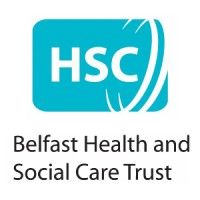预约演示
更新于:2025-05-07
ABL x c-Kit x Bcr-Abl x PDGFRs
更新于:2025-05-07
关联
10
项与 ABL x c-Kit x Bcr-Abl x PDGFRs 相关的药物作用机制 Bcr-Abl T315I抑制剂 [+1] |
原研机构 |
在研适应症 |
非在研适应症- |
最高研发阶段批准上市 |
首次获批国家/地区 中国 |
首次获批日期2021-11-24 |
作用机制 Bcr-Abl抑制剂 [+4] |
在研适应症 |
最高研发阶段批准上市 |
首次获批国家/地区 瑞士 |
首次获批日期2007-07-24 |
作用机制 Bcr-Abl抑制剂 [+9] |
在研适应症 |
非在研适应症 |
最高研发阶段批准上市 |
首次获批国家/地区 美国 |
首次获批日期2006-06-28 |
1,337
项与 ABL x c-Kit x Bcr-Abl x PDGFRs 相关的临床试验NCT05944783
Bioequivalence Studies of Dasatinib 100 Mg Tablets in Healthy Colombian Subjects in Postprandial Condition
A bioequivalence study of Dasatinib will be carried out in 46 healthy subjects, in fed condition, following the complete replicated design, randomized, comparative of 2 sequences, 2 study formulations, in a single dose of 100 mg of Dasatinib tablets / coated tablets, 4 periods. , with a washout time of 7 days between each dose
开始日期2025-09-01 |
申办/合作机构- |
ISRCTN16409847
Investigation of novel and established therapies in a human intravenous lipopolysaccharide model of sepsis
开始日期2025-08-06 |
NCT06817720
Phase II Study Assessing the Efficacy and Toxicity of Olverembatinib Monotherapy in Patients With Newly Diagnosed Chronic Myeloid Leukemia in Chronic Phase
To learn if olverembatinib can help to control newly diagnosed CML in the chronic phase.
开始日期2025-07-30 |
申办/合作机构 |
100 项与 ABL x c-Kit x Bcr-Abl x PDGFRs 相关的临床结果
登录后查看更多信息
100 项与 ABL x c-Kit x Bcr-Abl x PDGFRs 相关的转化医学
登录后查看更多信息
0 项与 ABL x c-Kit x Bcr-Abl x PDGFRs 相关的专利(医药)
登录后查看更多信息
337
项与 ABL x c-Kit x Bcr-Abl x PDGFRs 相关的文献(医药)2025-01-01·Indian Journal of Hematology and Blood Transfusion
Significance of Somatic Mutation Profiling in CML Beyond BCR-ABL: A Retrospective Study of the Indian Population
Article
作者: Patel, Falguni ; Jajodia, Ekta ; Vaishnani, Toral ; Patel, Lokesh ; Trivedi, Nikha ; Arora, Neeraj ; Patel, Dhiren ; Chaudhary, Pooja ; Ahmad, Firoz ; Patel, Shiv ; Chaudhary, Spandan
2023-09-01·Clinical laboratory
Complex Karyotype Acute Basophilic Leukemia with Reactive Mast Cell Hyperplasia.
作者: Li, Ruimin ; Wu, Yiping ; Zhang, Xiaofang ; Guo, Hongxia ; Guo, Jia
2023-05-15·Cureus
Imatinib-Induced Lichen Planus in Chronic Myeloid Leukemia: A Case Series
作者: Mavalavan, V M Durai ; Kumar, Janardhanan ; Eswaran, Hariharan ; Chandrasekaran, Nirmala Devi ; Yelisetti, Anuhya
62
项与 ABL x c-Kit x Bcr-Abl x PDGFRs 相关的新闻(医药)2025-02-27
·兰卫医学
当血液病遇上"技术革命"
血液病精准诊断的"黄金搭档":
MICM平台如何改写诊疗规则?
"医生,我的检查报告单为什么需要等这么久?"一位淋巴瘤患者的疑问道出了传统血液病诊断的痛点。
如今,随着MICM整合诊断平台的启用,这种等待从数周缩短到数天。这个由形态学(M)、免疫学(I)、细胞遗传学(C)、分子生物学(M)构建的MICM综合诊断平台,正在掀起血液病诊疗的精准化革命。MICM通过整合不同层面的检测信息,从宏观到微观,从细胞层面到分子层面,对血液疾病进行全面、深入的剖析,为临床医生提供准确的诊断结果和个性化的治疗建议。
一
揭秘MICM技术矩阵
形态学:百闻不如一见的 “火眼金睛”
形态学就像是在微观世界里的 “侦察兵”。通过显微镜,我们能够直接观察细胞的形态和结构,判断细胞是否出现异常,比如病态造血现象,或者异常细胞的出现。经验丰富的医生就如同微观世界的 “侦探”,从细胞的形状、大小、细胞核与细胞质的比例等细微之处,寻找疾病的蛛丝马迹。它是血液病诊断的基础,能够帮助医生初步判断病情,为后续更深入的检测指明方向。
免疫学:细胞身份的 “解码器”
免疫学利用流式细胞技术和免疫组化方法,如同细胞身份的 “解码器”。白血病细胞具有独特的免疫表型通过检测CD分子标记,它不仅能够区分90%以上的白血病亚型,还能发现仅占0.01%的微小残留病灶,通过这种方法我们可以区分急性和慢性白血病的不同亚型。临床数据表明,免疫分型让诊断准确率从60%大幅提升至95%。这对于准确诊断疾病、制定针对性的治疗方案非常关键。
特异:cMPO
幼稚:CD34,CD117,CD38,HLA-DR
粒单:CD33,CD13,CD11b,CD64,CD14,CD11c,CD15,CD16,CD10
巨核细胞:CD41,CD61,CD42b
红细胞:CD71,GlyA
细胞遗传学:染色体里的 “命运图谱”
细胞遗传学包括传统的染色体核型分析和荧光原位杂交技术(FISH)。染色体的结构和数量异常与许多血液疾病密切相关,数据显示,大约 60% 的血液肿瘤存在特征性染色体异常。传统的染色体核型分析可以帮助我们了解染色体的整体形态和数目变化,FISH技术则能够更精准地检测特定基因的位置和拷贝数变化。这些信息对于治疗方案的选择起着决定性作用。
分子生物学:基因层面的 “放大镜”
从PCR到NGS,分子诊断技术不断突破检测极限。NGS的高通量检测系统能够一次性筛查上百种融合基因亚型,将传统方法30%的漏检率降低至5%以下。数字PCR技术对BCR-ABL的检测灵敏度更是可以达到0.001%,让微小残留病灶(MRD)无所遁形。通过对基因层面的检测,我们能够深入理解疾病的发病机制,为靶向治疗提供有力的指导,从而提高治疗效果,减少不必要的治疗副作用。
二
行业变革:从单兵作战到系统整合
MICM 平台的优势在于它的全面性和精准性。单一的检测方法往往存在局限性,而 MICM 平台整合了多种检测技术,能够从多个角度对血液疾病进行评估。通过形态学的初步观察,免疫学的细胞分群,细胞遗传学的染色体分析,以及分子生物学的基因分型,医生可以全面了解患者的病情,制定出最适合患者的个性化治疗方案。
在临床实践中,MICM 平台已经取得了显著的成果。它提高了血液疾病的诊断准确率,减少了误诊和漏诊的发生。同时,基于精准的诊断结果,医生能够选择更有效的治疗方法,提高治疗效果,降低患者的痛苦和医疗成本。
三
未来图景:当AI遇见单细胞测序
随着医学技术的不断进步,MICM 平台也在不断发展和完善。未来,我们期待看到更多先进的检测技术融入 MICM 平台,进一步提高其诊断的准确性和效率。例如:数字PCR平台的持续发展,将让融合基因检测灵敏度提升至0.001%的同时成本降低60%,报告周期压缩至12小时,大大提高临床的可用性。单细胞测序技术正在突破肿瘤异质性难题,能解析白血病干细胞的基因表达谱,为根治性治疗提供新靶点。
精准医学时代的"诊断交响曲"
从显微镜到基因测序仪,从经验判断到数据驱动,MICM平台正在谱写血液病诊疗的精准乐章。正如黄晓军院士所言:"当形态学家的慧眼、免疫学家的精密、遗传学家的远见与分子生物学家的洞察完美融合,我们终将攻克血液肿瘤这座堡垒。"
兰卫医学专注于血液病诊断领域,构建了基于 MICM 的四大诊断平台,搭建起一套完善的产品矩阵。这个矩阵以荧光定量 PCR、数字 PCR、流式细胞术、二代测序等先进技术平台为核心,贯穿血液病诊疗的全过程。从血液病的亚型分型、预后评估,用药指导,微小残留病(MRD)监测,全面覆盖每一个关键环节的临床检测需求。
本文综合医学进展与临床实践,具体诊疗请遵医嘱;
图源来自于网络
本文由 市场中心 提供
免疫疗法
2025-01-06
·求实药社
2024年的亚盛医药可谓收获满满。
首个商业化产品销量一路高歌猛进,与武田制药的BD交易让公司首次实现了扭亏为盈,在研管线进展顺利……
多重利好之下,亚盛医药2024年的股价从年初的27港元/股,涨至45.45港元/股,上涨68%,如果从4月份低点算,则上涨195%,成为今年医药股中的“黑马”。
与此同时,亚盛医药还开启了美股IPO进程。近日,亚盛医药赴美IPO的上市备案获得证监会确认,拟发行不超过33,739,347股普通股并在美国纳斯达克证券交易所上市。
01
扭亏利器
亚盛医药创立于2009年,专注于癌症等疾病领域的原创新药研发,其创始人包括杨大俊博士、郭明博士和王少萌博士三位海归科学家。在2021年之前,亚盛医药尚未有产品上市销售,为支撑高昂的研发投入,历经多轮融资后,于2019年10月在香港联交所主板成功上市。
港股上市四年后的2024年上半年,亚盛医药取得重大突破,实现营收8.24亿元,同比增长477%;净利润1.63亿元,成功扭亏为盈,而这一转变的关键在于其首款商业化产品——奥雷巴替尼(耐立克)。
奥雷巴替尼是一种新型口服第三代酪氨酸激酶抑制剂(TKI),是国内首个上市的第三代TKI,对包括BCR-ABL、KIT、PDGFR、FGFR、b-RAF、DDR1、FLT3等多种激酶具有良好的活性,在实体瘤和血液肿瘤治疗领域具备广阔前景。
2016年,亚盛医药收购顺健生物,从而获取奥雷巴替尼,并于2021年11月获批首个适应症,成为国内首款用于治疗TKI耐药且伴有T315I突变的慢性髓细胞白血病(CML)的药物,填补了临床治疗空白。2023年11月,其适应症进一步拓展至一代和二代TKI耐药和/或不耐受的CML-CP患者。
在商业化推广方面,2021年7月,亚盛医药与信达生物达成协议,双方将在中国市场进行共同商业化推广,并按照50%:50%对来自共同推广部分的利润进行分成。借助信达生物的商业化渠道与专业团队,奥雷巴替尼得以迅速覆盖各级医院和药房。2023年及2025年,奥雷巴替尼的两大适应症先后纳入医保目录,极大地提升了药品的可及性。
2024年上半年,奥雷巴替尼销售收入1.13亿元,环比增长120%,同比增长5%。外界预测,2024年及2025年销售额预计将达到2.18和4.78亿元。
然而,仅靠销售收入不足以使亚盛医药如此迅速地实现扭亏。2024年6月14日,亚盛医药与武田就奥雷巴替尼全球许可签署独家选择权协议。武田支付1亿美元选择权付款,以及最高约12亿美元的选择权行使费和额外的潜在里程碑付款等,获得奥雷巴替尼全球(中国大陆、香港、澳门和台湾地区除外)的开发及商业化权利许可。
这笔国内小分子肿瘤药最大BD,不仅让亚盛医药在上半年实现大幅扭亏,也为其产品的全球商业化铺平了道路。目前奥雷巴替尼针对耐药性慢粒白血病、费城染色体阳性急性淋巴细胞白血病、SDH缺陷型胃肠道间质瘤适应症已处于全球以及美国注册III期临床阶段。随着新适应症的获批以及国际市场的开拓,奥雷巴替尼的商业价值将得到充分释放,为亚盛医药的后续研发和可持续发展奠定坚实的经济基础。
图1 奥雷巴替尼临床研究进展
图片来源:亚盛医药
02
潜力管线
除了奥雷巴替尼,亚盛医药的在研管线同样充满竞争力。目前,已成功构建起丰富多元的创新药产品矩阵,包括抑制Bcl-2、IAP或MDM2-p53等细胞凋亡通路关键蛋白的抑制剂,以及新一代针对癌症治疗中出现的激酶突变体的抑制剂等。
从研发管线的布局来看,亚盛医药制定了清晰的全球阶梯上市梯队策略,其中APG-2575和APG-2449极具潜力,有望接续奥雷巴替尼,成为公司新的商业化产品。
图2 亚盛医药管线阶梯上市策略
图片来源:亚盛医药
APG-2575(Lisaftoclax)是一种新型口服Bcl-2选择性抑制剂,通过选择性抑制Bcl-2蛋白,恢复癌细胞的正常凋亡过程,从而达到治疗肿瘤的目的。
目前全球仅有一款Bcl-2抑制剂获批,也就是艾伯维的爆款药物Venetoclax,2023年销售额达到23亿美元。APG-2575正在开展五项注册临床研究,其中复发/难治(R/R)的慢性淋巴细胞白血病/小淋巴细胞淋巴瘤(CLL/SLL)适应症已于2024年11月在中国递交NDA,并获推荐优先审评,有望成为国产首个、全球第二个上市的Bcl-2抑制剂。
多项临床数据表明,APG-2575在安全性等关键指标上表现优异,超越Venetoclax,这使其上市后具备打破现有市场格局、冲击Venetoclax垄断地位的实力。
APG-2449是一款口服小分子FAK抑制剂,同时也是第三代ALK/ROS1 TKI。目前正在开展针对二代ALK TKI耐药或不耐受的非小细胞肺癌(NSCLC)患者,或初治ALK阳性晚期或局部晚期NSCLC患者的两项注册III期临床研究,有望成为全球首个FAK/ALK/ROS1三联抑制剂。
根据亚盛医药在2024美国临床肿瘤学会(ASCO)年会上公布的最新数据,APG-2449在未经TKI治疗的患者中或2代ALK TKI耐药的患者中都显示出初步疗效,对脑转移病灶亦有初步疗效。
除此以外,亚盛医药在研管线中的MDM2-p53抑制剂APG-115、Bcl-2/Bcl-xL抑制剂APG-1252、EED抑制剂APG-5918都具备全球"First-in-class"潜力,有望在未来的全球医药市场中占据一席之地。
03
赴美上市
目前亚盛医药已在中国、美国、澳大利亚及欧洲开展40多项临床试验,其中包括13项注册临床研究。2022年—2024年上半年,亚盛医药研发支出分别达到7.43亿元、7.07亿元及4.44亿元。
为保障在研管线的顺利推进,亚盛医药采取了一系列举措来确保资金链的稳定与充足。一方面,加速产品商业化进程,以提升自身造血能力;另一方面,积极拓展融资途径。
港股上市后的亚盛医药在2020年、2021年及2023均通过股份配售进行募资,分别募得约7亿港元、15.6亿港元及5.5亿港元。在与武田制药的BD交易中,武田制药还以7500万美元投资亚盛医药,获得了亚盛医药7.73%的股份,进一步充实了其资金储备。截至2024年7月,亚盛医药持有的现金超过18亿元,为研发与商业化工作的持续推进提供了稳定的现金流。
2024年6月14日,亚盛医药迈出了新的战略步伐,向美国证券交易委员会保密提交了一份F-1表格登记声明草案,计划通过美国存托股份形式进行首次公开发售普通股。
12月23日,证监会网站显示,亚盛医药获中国证监会境外发行上市备案通知书,拟发行不超过3373.93万股普通股并在美国纳斯达克证券交易所上市。
12月27日,亚盛医药公开向美国证券交易委员会(SEC)递交IPO,拟申请在纳斯达克全球精选市场上市,股票代码为「AAPG」,J.P.Morgan Securities LLC及Citigroup Global Markets Inc.将担任此次发售的联合账簿管理人及包销商代表。如果顺利,亚盛医药将在2025年登陆美股,成为继百济神州、和黄医药、再鼎医药后的第4家港美两地上市创新药企。
相较于国内创新药企普遍面临的融资压力,美股市场对创新药企的估值通常更为乐观,对于具有真实创新潜力的企业给予了更高的价值认可。亚盛医药选择赴美上市,不仅能够拓宽融资渠道,获取更多的资金支持,还有机会在美股市场重新评估其企业价值,吸引更广泛的资本关注与投入,从而为其创新研发提供更强大的资金后盾。
此外,亚盛医药的多款在研管线正在全球范围内开展临床试验,拥有367项海外授权专利。进入美股市场后,将有助于其深度融入全球生物科技产业链,更好地进行国际合作与交流,提升其在全球生物医药领域的影响力与竞争力。
04
结语
2024年对于亚盛医药而言是辉煌的一年,奥雷巴替尼商业价值逐渐兑现,在研管线潜力巨大,股价飙升更是市场对其的认可。如今,赴美上市的征程开启,期待2025年的亚盛医药在国际舞台大放异彩。
参考资料
1.亚盛医药年报、半年报
2.《血液瘤龙头打造全球“BIC”产品,赴美上市有望开启新阶段》,方正医药,2024年11月28日
国内唯一!
深度聚焦自免药物开发的峰会
联系我们
AIM 2025
展位火热预定中!
扫码立即咨询
电话:13816031174
(同微信)
赞助形式包括但不仅限于演讲席位、会场展位、会刊彩页、晚宴赞助、会议用品宣传等。
点击此处“阅读全文”咨询更多!
IPO并购申请上市财报
2025-01-04
·药智网
2024年的亚盛医药可谓收获满满。
首个商业化产品销量一路高歌猛进,与武田制药的BD交易让公司首次实现了扭亏为盈,在研管线进展顺利……
多重利好之下,亚盛医药2024年的股价从年初的27港元/股,涨至45.45港元/股,上涨68%,如果从4月份低点算,则上涨195%,成为今年医药股中的“黑马”。
与此同时,亚盛医药还开启了美股IPO进程。近日,亚盛医药赴美IPO的上市备案获得证监会确认,拟发行不超过33,739,347股普通股并在美国纳斯达克证券交易所上市。
01
扭亏利器
亚盛医药创立于2009年,专注于癌症等疾病领域的原创新药研发,其创始人包括杨大俊博士、郭明博士和王少萌博士三位海归科学家。在2021年之前,亚盛医药尚未有产品上市销售,为支撑高昂的研发投入,历经多轮融资后,于2019年10月在香港联交所主板成功上市。
港股上市四年后的2024年上半年,亚盛医药取得重大突破,实现营收8.24亿元,同比增长477%;净利润1.63亿元,成功扭亏为盈,而这一转变的关键在于其首款商业化产品——奥雷巴替尼(耐立克)。
奥雷巴替尼是一种新型口服第三代酪氨酸激酶抑制剂(TKI),是国内首个上市的第三代TKI,对包括BCR-ABL、KIT、PDGFR、FGFR、b-RAF、DDR1、FLT3等多种激酶具有良好的活性,在实体瘤和血液肿瘤治疗领域具备广阔前景。
2016年,亚盛医药收购顺健生物,从而获取奥雷巴替尼,并于2021年11月获批首个适应症,成为国内首款用于治疗TKI耐药且伴有T315I突变的慢性髓细胞白血病(CML)的药物,填补了临床治疗空白。2023年11月,其适应症进一步拓展至一代和二代TKI耐药和/或不耐受的CML-CP患者。
在商业化推广方面,2021年7月,亚盛医药与信达生物达成协议,双方将在中国市场进行共同商业化推广,并按照50%:50%对来自共同推广部分的利润进行分成。借助信达生物的商业化渠道与专业团队,奥雷巴替尼得以迅速覆盖各级医院和药房。2023年及2025年,奥雷巴替尼的两大适应症先后纳入医保目录,极大地提升了药品的可及性。
2024年上半年,奥雷巴替尼销售收入1.13亿元,环比增长120%,同比增长5%。外界预测,2024年及2025年销售额预计将达到2.18和4.78亿元。
然而,仅靠销售收入不足以使亚盛医药如此迅速地实现扭亏。2024年6月14日,亚盛医药与武田就奥雷巴替尼全球许可签署独家选择权协议。武田支付1亿美元选择权付款,以及最高约12亿美元的选择权行使费和额外的潜在里程碑付款等,获得奥雷巴替尼全球(中国大陆、香港、澳门和台湾地区除外)的开发及商业化权利许可。
这笔国内小分子肿瘤药最大BD,不仅让亚盛医药在上半年实现大幅扭亏,也为其产品的全球商业化铺平了道路。目前奥雷巴替尼针对耐药性慢粒白血病、费城染色体阳性急性淋巴细胞白血病、SDH缺陷型胃肠道间质瘤适应症已处于全球以及美国注册III期临床阶段。随着新适应症的获批以及国际市场的开拓,奥雷巴替尼的商业价值将得到充分释放,为亚盛医药的后续研发和可持续发展奠定坚实的经济基础。
图1 奥雷巴替尼临床研究进展
图片来源:亚盛医药
02
潜力管线
除了奥雷巴替尼,亚盛医药的在研管线同样充满竞争力。目前,已成功构建起丰富多元的创新药产品矩阵,包括抑制Bcl-2、IAP或MDM2-p53等细胞凋亡通路关键蛋白的抑制剂,以及新一代针对癌症治疗中出现的激酶突变体的抑制剂等。
从研发管线的布局来看,亚盛医药制定了清晰的全球阶梯上市梯队策略,其中APG-2575和APG-2449极具潜力,有望接续奥雷巴替尼,成为公司新的商业化产品。
图2 亚盛医药管线阶梯上市策略
图片来源:亚盛医药
APG-2575(Lisaftoclax)是一种新型口服Bcl-2选择性抑制剂,通过选择性抑制Bcl-2蛋白,恢复癌细胞的正常凋亡过程,从而达到治疗肿瘤的目的。
目前全球仅有一款Bcl-2抑制剂获批,也就是艾伯维的爆款药物Venetoclax,2023年销售额达到23亿美元。APG-2575正在开展五项注册临床研究,其中复发/难治(R/R)的慢性淋巴细胞白血病/小淋巴细胞淋巴瘤(CLL/SLL)适应症已于2024年11月在中国递交NDA,并获推荐优先审评,有望成为国产首个、全球第二个上市的Bcl-2抑制剂。
多项临床数据表明,APG-2575在安全性等关键指标上表现优异,超越Venetoclax,这使其上市后具备打破现有市场格局、冲击Venetoclax垄断地位的实力。
APG-2449是一款口服小分子FAK抑制剂,同时也是第三代ALK/ROS1 TKI。目前正在开展针对二代ALK TKI耐药或不耐受的非小细胞肺癌(NSCLC)患者,或初治ALK阳性晚期或局部晚期NSCLC患者的两项注册III期临床研究,有望成为全球首个FAK/ALK/ROS1三联抑制剂。
根据亚盛医药在2024美国临床肿瘤学会(ASCO)年会上公布的最新数据,APG-2449在未经TKI治疗的患者中或2代ALK TKI耐药的患者中都显示出初步疗效,对脑转移病灶亦有初步疗效。
除此以外,亚盛医药在研管线中的MDM2-p53抑制剂APG-115、Bcl-2/Bcl-xL抑制剂APG-1252、EED抑制剂APG-5918都具备全球"First-in-class"潜力,有望在未来的全球医药市场中占据一席之地。
03
赴美上市
目前亚盛医药已在中国、美国、澳大利亚及欧洲开展40多项临床试验,其中包括13项注册临床研究。2022年—2024年上半年,亚盛医药研发支出分别达到7.43亿元、7.07亿元及4.44亿元。
为保障在研管线的顺利推进,亚盛医药采取了一系列举措来确保资金链的稳定与充足。一方面,加速产品商业化进程,以提升自身造血能力;另一方面,积极拓展融资途径。
港股上市后的亚盛医药在2020年、2021年及2023均通过股份配售进行募资,分别募得约7亿港元、15.6亿港元及5.5亿港元。在与武田制药的BD交易中,武田制药还以7500万美元投资亚盛医药,获得了亚盛医药7.73%的股份,进一步充实了其资金储备。截至2024年7月,亚盛医药持有的现金超过18亿元,为研发与商业化工作的持续推进提供了稳定的现金流。
2024年6月14日,亚盛医药迈出了新的战略步伐,向美国证券交易委员会保密提交了一份F-1表格登记声明草案,计划通过美国存托股份形式进行首次公开发售普通股。
12月23日,证监会网站显示,亚盛医药获中国证监会境外发行上市备案通知书,拟发行不超过3373.93万股普通股并在美国纳斯达克证券交易所上市。
12月27日,亚盛医药公开向美国证券交易委员会(SEC)递交IPO,拟申请在纳斯达克全球精选市场上市,股票代码为「AAPG」,J.P.Morgan Securities LLC及Citigroup Global Markets Inc.将担任此次发售的联合账簿管理人及包销商代表。如果顺利,亚盛医药将在2025年登陆美股,成为继百济神州、和黄医药、再鼎医药后的第4家港美两地上市创新药企。
相较于国内创新药企普遍面临的融资压力,美股市场对创新药企的估值通常更为乐观,对于具有真实创新潜力的企业给予了更高的价值认可。亚盛医药选择赴美上市,不仅能够拓宽融资渠道,获取更多的资金支持,还有机会在美股市场重新评估其企业价值,吸引更广泛的资本关注与投入,从而为其创新研发提供更强大的资金后盾。
此外,亚盛医药的多款在研管线正在全球范围内开展临床试验,拥有367项海外授权专利。进入美股市场后,将有助于其深度融入全球生物科技产业链,更好地进行国际合作与交流,提升其在全球生物医药领域的影响力与竞争力。
04
结语
2024年对于亚盛医药而言是辉煌的一年,奥雷巴替尼商业价值逐渐兑现,在研管线潜力巨大,股价飙升更是市场对其的认可。如今,赴美上市的征程开启,期待2025年的亚盛医药在国际舞台大放异彩。
参考资料
1.亚盛医药年报、半年报
2.《血液瘤龙头打造全球“BIC”产品,赴美上市有望开启新阶段》,方正医药,2024年11月28日
友情推荐:医药行业深度技术内容,点击“博药”查看详情~
声明:本内容仅用作医药行业信息传播,为作者独立观点,不代表药智网立场。如需转载,请务必注明文章作者和来源。对本文有异议或投诉,请联系maxuelian@yaozh.com。
责任编辑 | 史蒂文
合作、投稿、转载开白 | 马老师 18323856316(同微信)
阅读原文,是受欢迎的文章哦
IPO并购申请上市财报
分析
对领域进行一次全面的分析。
登录
或

生物医药百科问答
全新生物医药AI Agent 覆盖科研全链路,让突破性发现快人一步
立即开始免费试用!
智慧芽新药情报库是智慧芽专为生命科学人士构建的基于AI的创新药情报平台,助您全方位提升您的研发与决策效率。
立即开始数据试用!
智慧芽新药库数据也通过智慧芽数据服务平台,以API或者数据包形式对外开放,助您更加充分利用智慧芽新药情报信息。
生物序列数据库
生物药研发创新
免费使用
化学结构数据库
小分子化药研发创新
免费使用


